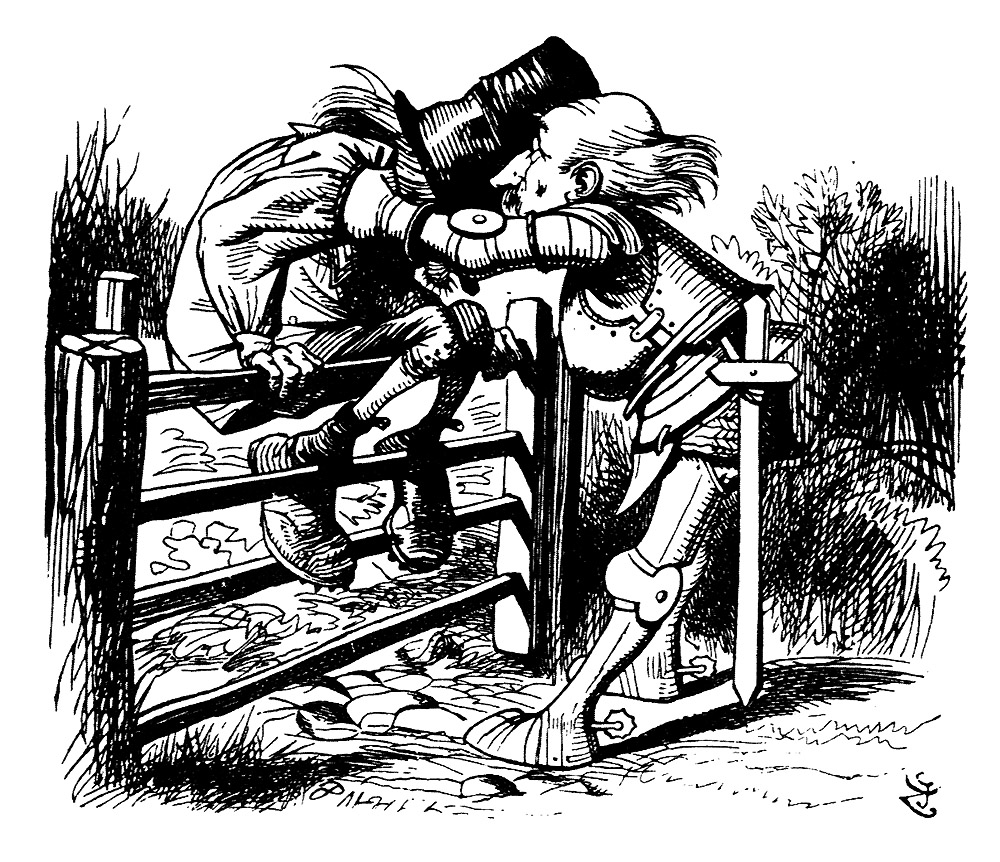|
Haddocks' Eyes
"Haddocks' Eyes" is a song sung by The White Knight from Lewis Carroll's 1871 novel ''Through the Looking-Glass'', chapter VIII. "Haddocks' Eyes" is an example used to elaborate on the symbolic status of the concept of "name": a name as identification marker may be assigned to anything, including another name, thus introducing different levels of symbolization. It has been discussed in several works on logic and philosophy. Naming The White Knight explains to Alice a confusing nomenclature for the song. To summarize: *The song's name is called ''Haddocks' Eyes'' *The song's name is ''The Aged Aged Man'' *The song is called ''Ways and Means'' *The song is ''A-sitting on a Gate'' The complicated terminology distinguishing between 'the song, what the song is called, the name of the song, and what the name of the song is called' both uses and mentions the use–mention distinction. The song The White Knight sings the song to a tune he claims as his own invention, but whic ... [...More Info...] [...Related Items...] OR: [Wikipedia] [Google] [Baidu] |
Knight2
A knight is a person granted an honorary title of knighthood by a head of state (including the Pope) or representative for service to the monarch, the church or the country, especially in a military capacity. Knighthood finds origins in the Greek ''hippeis'' and '' hoplite'' (ἱππεῖς) and Roman '' eques'' and '' centurion'' of classical antiquity. In the Early Middle Ages in Europe, knighthood was conferred upon mounted warriors. During the High Middle Ages, knighthood was considered a class of lower nobility. By the Late Middle Ages, the rank had become associated with the ideals of chivalry, a code of conduct for the perfect courtly Christian warrior. Often, a knight was a vassal who served as an elite fighter or a bodyguard for a lord, with payment in the form of land holdings. The lords trusted the knights, who were skilled in battle on horseback. Knighthood in the Middle Ages was closely linked with horsemanship (and especially the joust) from its origins in t ... [...More Info...] [...Related Items...] OR: [Wikipedia] [Google] [Baidu] |

